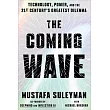Science, not politics, can take us beyond the hype and headlines to forge a realistic green new deal.
Since it was first proposed in the US House of Representatives, the Green New Deal has been hotly debated, often using partisan characterizations that critique it as extreme or socialist. The intent was not simply to fight climate change or address a specific environmental concern, but rather to tackle how climate change and other environmental challenges affect the economy, the vulnerable, and social justice--and vice versa.
In Science for a Green New Deal, Eric Davidson dissects this legislative resolution. He also shows how green new deal thinking offers a framework for a much-needed convergence of the natural sciences, social science, economics, and community engagement to develop holistic policy solutions to the most pressing issues of our day. Davidson weaves the case for linkages among multiple global crises, including a pandemic that has reversed progress on fighting poverty and hunger, an acceleration of climate change that has exacerbated storms, floods, droughts, and fires, and a renewed awareness of profound social injustices highlighted by the Black Lives Matter movement.
Illustrating these points with his personal life experiences as a child growing up in Montana and as a famed researcher leading a large scientific society, Davidson relates these complex challenges to our everyday lives and decision-making. How, he asks, can we extract from the Earth’s resources what we need for the prosperity, well-being, and dignity of current and future generations of billions of people without exhausting or polluting those resources? Written in clear, jargon-free prose, Science for a Green New Deal is a realistic and optimistic look at how we can attain a more sustainable, prosperous, and just future.



 天天爆殺
天天爆殺  今日66折
今日66折 
























 博客來
博客來 博客來
博客來 博客來
博客來 博客來
博客來 博客來
博客來